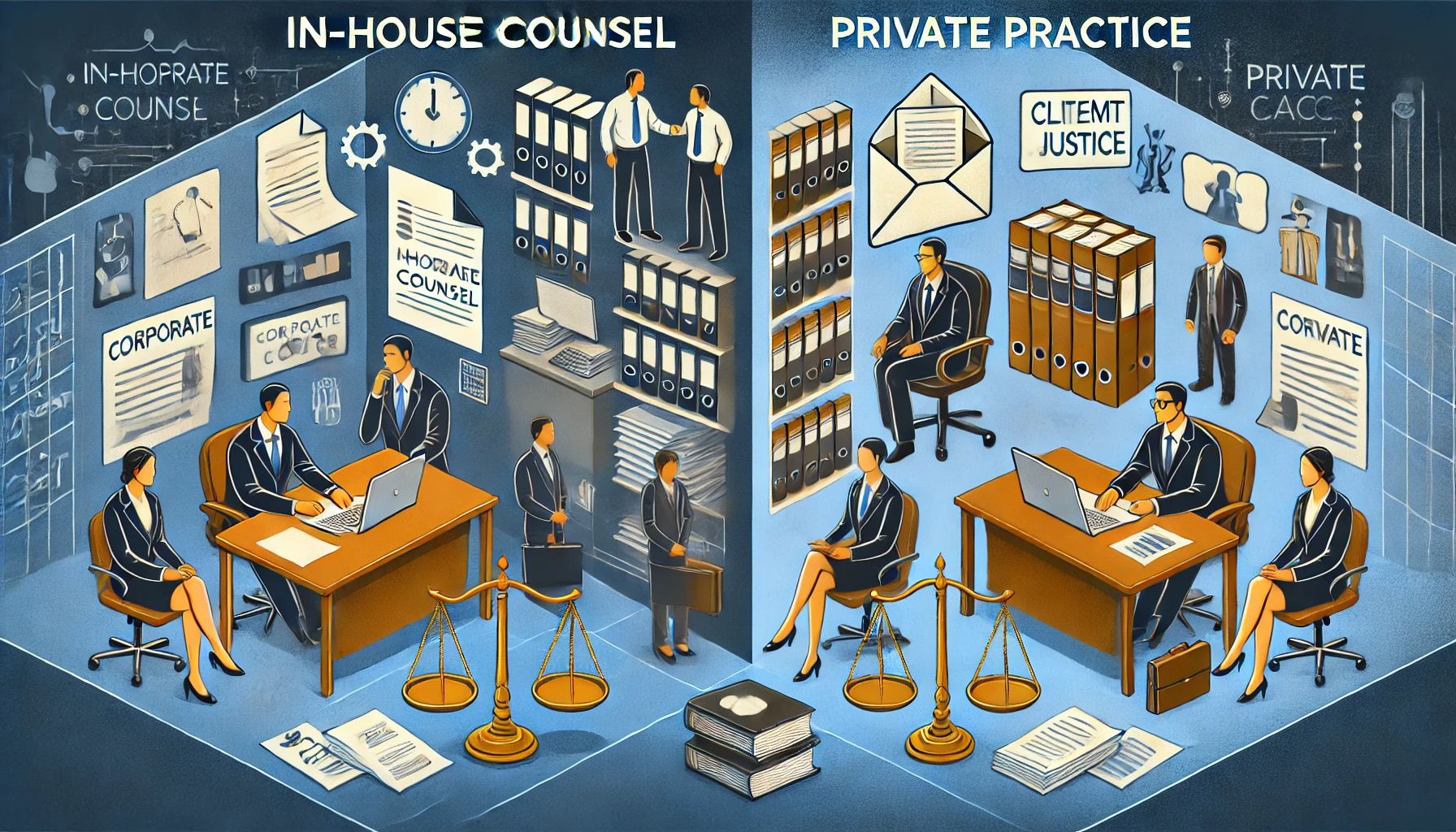For decades, the traditional career paths in law have been well-defined: lawyers either carved out a long-term career in private practice or transitioned to in-house roles for a different pace. Historically, the move from private practice to in-house was seen as a one-way street. Once a lawyer traded billable hours and business development for the perceived greener pastures of in-house, it was nearly unthinkable they would ever return.
Yet, in recent years, we have seen this tide turn. Increasingly, we are seeing a shift: experienced in-house counsel are making their way back to private practice. While this movement began gradually, it’s now a significant and growing trend.
Why are we seeing this reversal? Let’s dive into the evolving dynamics behind this unexpected migration.
Why Private Practice is Calling Lawyers Back
Private practice is no longer the rigid environment it was once perceived to be having evolved to offer greater flexibility and more diverse career options than ever before. Over the last decade, law firms have embraced change, adapting to modern workplace needs and employee expectations. These shifts have made private practice more attractive than ever, particularly to in-house lawyers who might have left years before.
Flexibility: Firms are increasingly offering hybrid work models, part-time arrangements, and other accommodations that allow lawyers to balance their professional and personal lives.
Diverse Career Paths: The singular focus on becoming a partner has softened. Roles such as special counsel, legal technologist, and knowledge manager provide fulfilling alternatives.
Deeper Pockets and Resources: Private practice often boasts sophisticated tools, robust support systems, and access to a diverse client base that can surpass what is available in-house. Additionally, many firms offer highly competitive salaries and bonuses, making the financial incentives of private practice more attractive than ever.
What’s Changed for In-House Lawyers
The allure of in-house roles traditionally revolved around being closer to the business, managing matters end-to-end, and escaping the billable hour grind. These advantages are still valid but have been tempered by evolving challenges:
Flat Structures: As in-house teams have expanded, they have become increasingly hierarchical with limited opportunities for promotion. Many senior in-house lawyers find themselves “topped out” with no clear next step.
Budget Constraints: In-house lawyers often face tighter resources and growing workloads, with fewer opportunities for external support.
Lack of Variety: While working in-house offers depth in specific industries, some lawyers miss the intellectual stimulation and diversity of work they once enjoyed in private practice.
Shifting Motivations
The reasons lawyers leave private practice for in-house roles and the factors driving them back to private practice have evolved over time:
Reasons to Go In-House: Traditionally, lawyers sought in-house roles to escape the pressures of business development, billable hours, and the partnership track. Many wanted to be closer to business decision-making and experience the satisfaction of seeing projects through to completion.
Reasons to Return to Private Practice: Today, private practice offers the flexibility, variety, and progression opportunities that many in-house roles can lack. Lawyers returning to private practice often rediscover the challenge and prestige of working on high-profile matters and enjoy more defined career trajectories.
A Win-Win Scenario
The return of in-house lawyers to private practice benefits everyone involved. For law firms, these lawyers bring invaluable commercial acumen and client insight, making them well-equipped to bridge the gap between legal expertise and business needs. For the lawyers themselves, returning to private practice offers renewed opportunities for growth, intellectual challenge, and professional fulfillment.
Breaking the Stigma
The movement from in-house back to private practice highlights an important cultural shift in the legal profession. What was once viewed as an unusual career move is now recognised as a strategic decision. Lawyers are increasingly making choices based on what aligns best with their goals, values, and aspirations at different stages of their careers and personal lives.
This trend reflects a broader evolution in the legal industry, where career paths are no longer linear but dynamic, flexible, and responsive to individual needs.
Looking Ahead
As the legal profession continues to evolve, the boundaries between private practice and in-house roles are blurring. Lawyers are embracing the freedom to move between these worlds, guided by opportunities for growth, flexibility, and balance.
For those considering their next career move, the return to private practice is no longer just an option—it’s an exciting and viable step forward.
If you’re contemplating a return to private practice or seeking to make the most of your in-house experience, the legal profession offers more options than ever before. Your next step could be the best one yet.
At JLegal Australia, we specialise in connecting legal professionals with opportunities that align with their skills, ambitions, and values. Whether you’re looking to make a move, explore options, or simply discuss your career trajectory, we’re here to help. Let’s discuss how we can support your next big c


